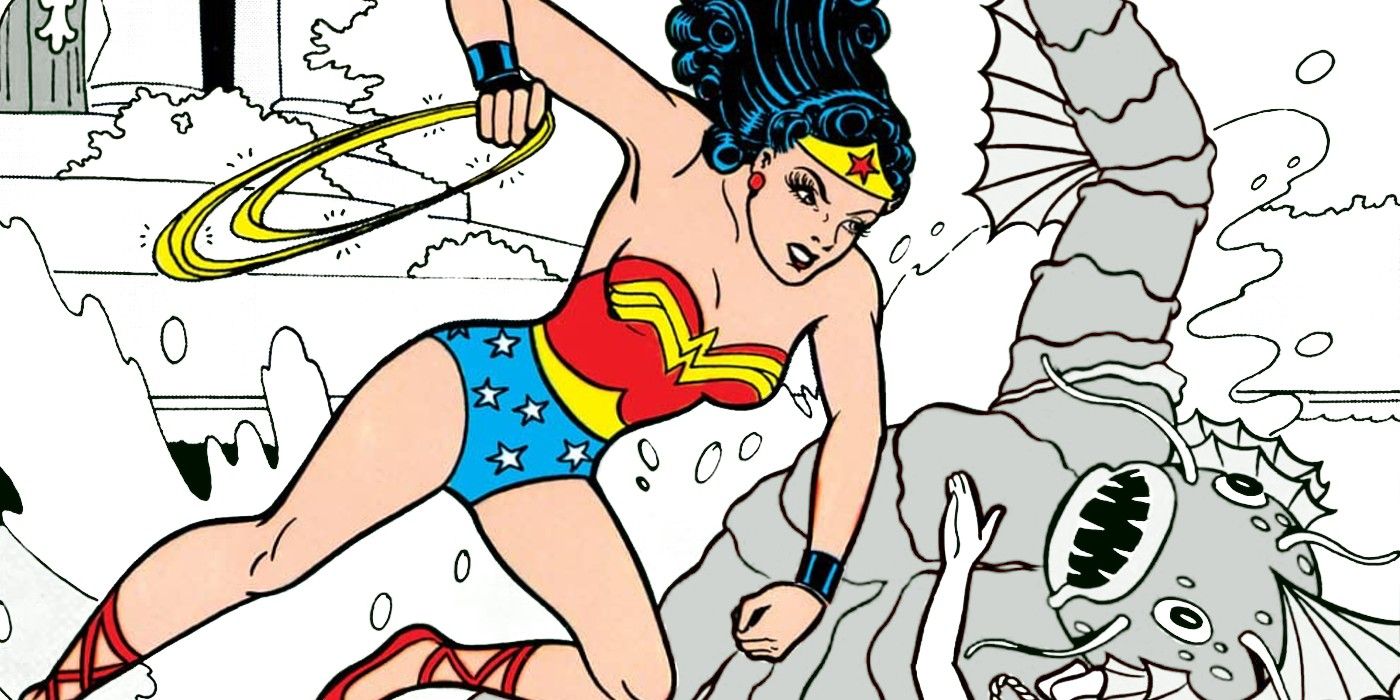Acclaimed comic creator Kurt Busiek (Batman: Creature of the Night, Trinity, Astro City) has claimed that his 1986 DC series The Legend of Wonder Woman - undertaken with Trina Robbins (Wonder Woman '77, Girl Comics, The Powerpuff Girls) - was created with the understanding that the series "wasn't supposed to sell."
A four-issue limited series, The Legend of Wonder Woman adopted the aesthetic of Wonder Woman's Golden Age comics to tell "untold stories" of Diana Prince's early adventures. Busiek notes that while the series was listed as one of the ten best books of the years by magazine Amazing Heroes, it didn't sell, and wasn't supposed to thanks to an unusual set of circumstances behind the scenes at DC Comics.
In a Twitter thread about the project, Kurt Busiek recounts that because of the promotion intended for George Pérez's then-upcoming reboot of the character, DC didn't want to fatigue readers and retailers by drawing attention to Busiek and Robbins' project, which was intended to be a "quirky" book that would fly under the radar. Busiek recounts being told that the series' title couldn't even begin with 'Wonder Woman' so as to avoid catching reader interest, with the names Wonder Woman: The Amazon Sensation, The Legendary Wonder Woman, and The Sensational Wonder Woman rejected. A fourth name, Sensation Comics, was also rejected, though in this case, Busiek recounts that this wasn't because it would attract unwanted reader attention, but because it would have worked against the actual reason the project was ever approved.
Busiek asserts that the point of the project was to meet legal conditions which prevented the rights for Wonder Woman reverting to the estate of William Moulton Marston, Diana's creator. Busiek clarifies that, "back then at least, DC’s contract with the Marston Estate was such that if they didn’t publish four issues of something with WW as the lead ... feature, with her name as the main logo or as the lead feature under some other logo, ever year, the rights would revert. I’ve been told since that that’s no longer true and I’ve been told that it’s still true, so go figure. It was true then." In Busiek's telling, DC needed to publish a series under these precise conditions - specifically including the character's name in the title - in order to maintain the rights to Wonder Woman, but weren't sure George Pérez's new series would be ready in time to meet the requirements. It's laughable to imagine comic professionals commissioning a comic designed to pass readers by, but under the twin conditions Busiek describes, it makes sense in the larger context of DC's plans for the hero.
The situation described may seem familiar to hardcore comic fans, as it possesses some similarities to Marvel's relationship with the "Captain Marvel" trademark - a hard-fought battleground in which Marvel had to keep demonstrating the term was in use many years after its original bearer's iconic death, leading to a string of characters adopting the name (with Carol Danvers the latest and most famous.) While fans have speculated that several Marvel miniseries were published with this goal in mind, none were known to be in the strange situation Kurt Busiek describes, where commercial failure was part of the intent.
Though Busiek is now a well-known name in modern comics, he notes in the Twitter thread that he believes he suffered for his involvement with The Legend of Wonder Woman's, saying he was considered a risk because the series hadn't sold, despite agreeing to write it on the condition that he wouldn't be held responsible for its poor sales. Nevertheless, he says he's glad he did the series, since it was fun to write and he was "in need of the money" - a perspective likely helped by what seems to have been a warm critical reception from those who did pick it up. Fans can judge for themselves, as the series is still available for purchase, apparently representing a strange chapter in Wonder Woman's comic career, and an example of just how weird the comics business can get.
Source: Kurt Busiek

